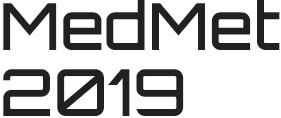Metrology for medical devices – towards a European harmonised approach
21st of October 2019
Berlin Adlershof
Scope
The workshop aims to create an international interdisciplinary exchange of ideas and approaches between legislators, regulators and manufacturers in the field of medical devices with a measuring function, concentrating on two main aspects: the harmonisation of the different national approaches concerning their metrological verification as part of the market surveillance and the harmonisation of the metrological requirements for conformity assessment and market surveillance
Background
In the EU, medical devices entering the market are legislated and regulated by the Medical Device Regulation (EU) 2017/745 (MDR). After entering the market certain aspects of the market surveillance (e.g. metrological checks) are regulated by very different national legislations. Hence, some countries opt for mandatory periodical metrological checks for certain categories of medical devices, while others prefer to opt out leading to a divergent situation on the European market.
In countries where periodical metrological checks are mandatory, NMIs are involved in setting the metrological requirements for the metrological checks of the medical devices, the corresponding test equipment and the verification procedures. These requirements can differ from the metrological requirements set by the notified bodies during conformity assessment, potentially restricting the further use of the affected medical device after few years on the market and causing inconvenience to manufacturers, operators and end-users.
The main aspect in ensuring an appropriate quality for medical devices with a measuring function is proof, that the accuracy, the stability and the precision claimed are actually achieved. The traceable calibration of medical devices is essential, but very challenging. Verification of medical devices with a measuring function is usually restricted to checking the accuracy of physical components (e.g. sensors) while ignoring the entire device and the medical relevant measurands. Not taking into account the complexity of a physiological measurement process can deem verifications as meaningless with respect to the accuracy of the physiological quantity of interest. To overcome these deficits, a truly medical metrology approach is needed, whose development and maintenance requires a significant amount of medical competence in addition to the competence in the sector of classical metrology.
Topics
- EU and national medical device legislation (MDD, MDR, national legislations)
- International standards vs. common specifications
- Regulations for placing on the market vs. national regulation for devices in operation (periodic verification)
- Development of common verification strategies for medical devices in operation
- Classical metrology vs. medical metrology
- Establishment of a European network for medical devices with a measuring function to underpin the harmonisation of requirements
- Round table/Panel discussion
